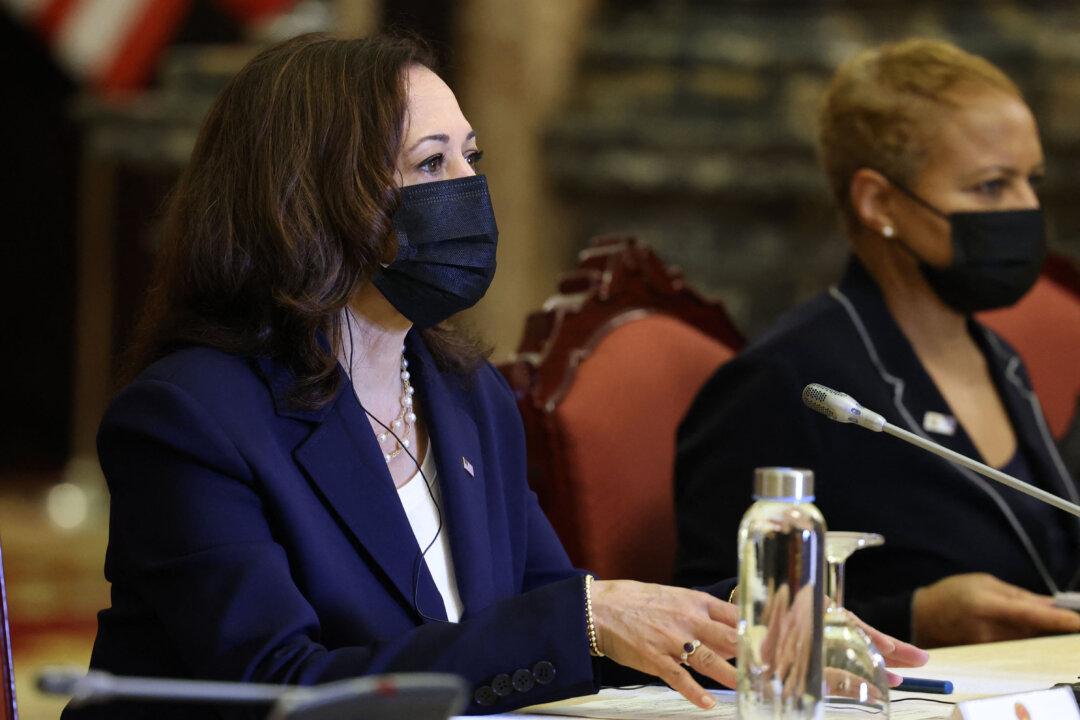U.S. Vice President Kamala Harris called on Vietnam to support the United States’ efforts to confront China’s “bullying” in the South China Sea on Aug. 25, a day after she outlined the Biden administration’s foreign policy plan for the Indo–Pacific region in a speech in Singapore.
Harris also announced a new COVID-19 vaccine donation to Vietnam, in an apparent effort to counter China’s vaccine diplomacy.





